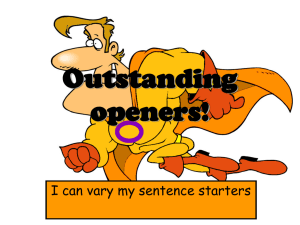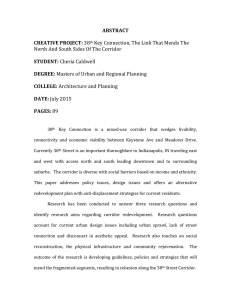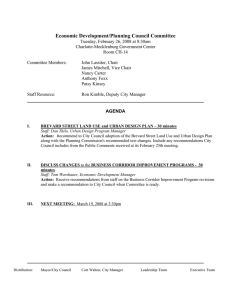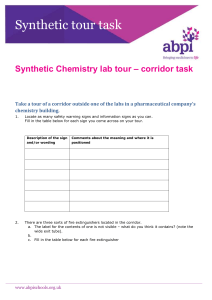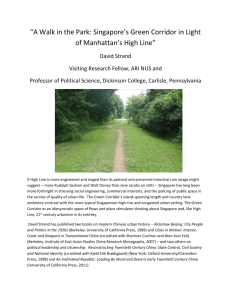Beijing Urban Design Workshop Tsinghua University Massachusetts Institute of Technology
advertisement
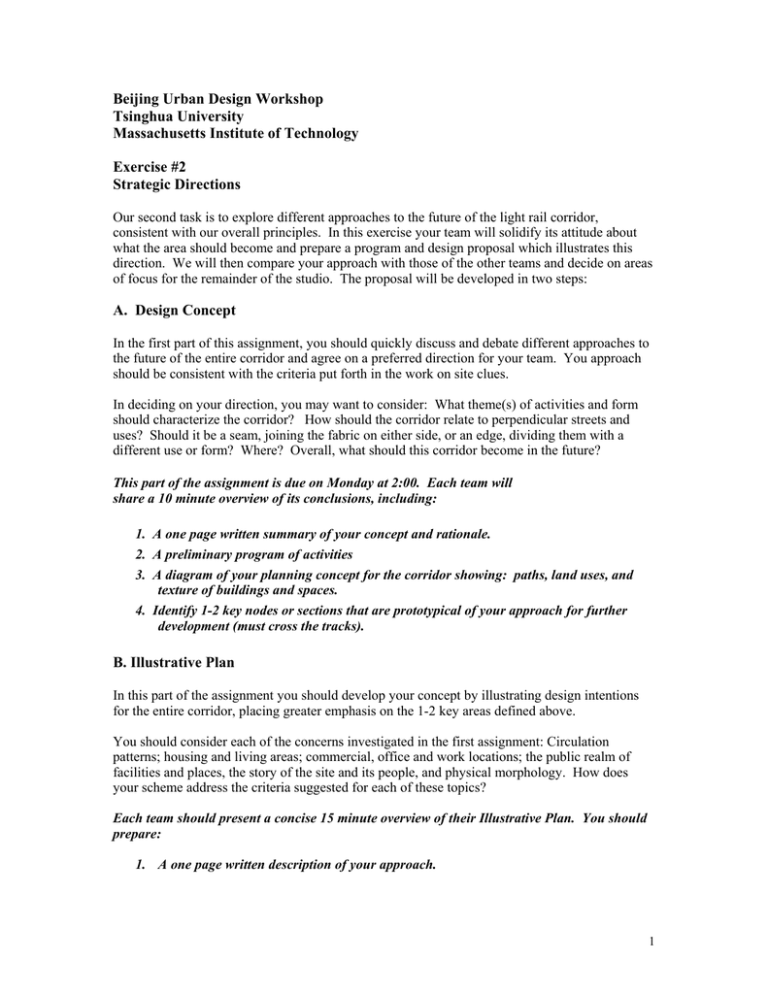
Beijing Urban Design Workshop Tsinghua University Massachusetts Institute of Technology Exercise #2 Strategic Directions Our second task is to explore different approaches to the future of the light rail corridor, consistent with our overall principles. In this exercise your team will solidify its attitude about what the area should become and prepare a program and design proposal which illustrates this direction. We will then compare your approach with those of the other teams and decide on areas of focus for the remainder of the studio. The proposal will be developed in two steps: A. Design Concept In the first part of this assignment, you should quickly discuss and debate different approaches to the future of the entire corridor and agree on a preferred direction for your team. You approach should be consistent with the criteria put forth in the work on site clues. In deciding on your direction, you may want to consider: What theme(s) of activities and form should characterize the corridor? How should the corridor relate to perpendicular streets and uses? Should it be a seam, joining the fabric on either side, or an edge, dividing them with a different use or form? Where? Overall, what should this corridor become in the future? This part of the assignment is due on Monday at 2:00. Each team will share a 10 minute overview of its conclusions, including: 1. A one page written summary of your concept and rationale. 2. A preliminary program of activities 3. A diagram of your planning concept for the corridor showing: paths, land uses, and texture of buildings and spaces. 4. Identify 1-2 key nodes or sections that are prototypical of your approach for further development (must cross the tracks). B. Illustrative Plan In this part of the assignment you should develop your concept by illustrating design intentions for the entire corridor, placing greater emphasis on the 1-2 key areas defined above. You should consider each of the concerns investigated in the first assignment: Circulation patterns; housing and living areas; commercial, office and work locations; the public realm of facilities and places, the story of the site and its people, and physical morphology. How does your scheme address the criteria suggested for each of these topics? Each team should present a concise 15 minute overview of their Illustrative Plan. You should prepare: 1. A one page written description of your approach. 1 2. An overall illustrative plan for the corridor, showing features of your proposal. (1:1000 scale) 3. Program and sketch design for one key area(s). Sections or axonometric to depict massing. (1:500 scale) 4. Other drawings or analogous photos as needed to convey your ideas. As you decide upon a direction and prepare an Illustrative Plan for the corridor, there are several key issues that have emerged from our discussions to date that you may want to bear in mind: How can your proposal act as a prototype for design and development of rail corridors and overhead tracks in Beijing and other cities? What is the appropriate balance of local verses regional facilities and commerce in a transportation corridor of this kind? How should the image and development of the corridor relate to Tsinghua University and the growing high technology focus in this part of Beijing? What is the best relationship between the elevated line and its edges? How can we create high quality public spaces and an identifiable place in the city? 2
